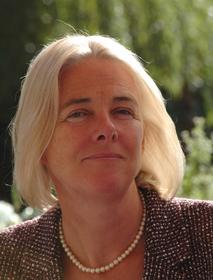Cabinet

- Catherine Day (Photo: EU Commission)
A cabinet is a group of important advisors to a president, a minister or a commissioner.
In the EU, every Commissioner has his or her own cabinet, typically with 7 advisors plus secretarial staff and a personal driver. There is now a requirement for cabinets to be representative of a range of nationalities.
The cabinet heads are led by the EU Commission Secretary General, currently the Irish civil servant David O'Sullivan. He meets with the heads of cabinets and prepares the Commission meetings. The cabinet chiefs have wide powers since the commissioners are asked to take part in all decisions but have seldom time to do so. Only 2% of Commission decisions are taken in the Commission proper. 25% are treated through written procedures and the rest by delegation.
The Treaty of Nice makes the choice of Commissioner the result of a qualified majority vote and will introduce rotation between nationalities in an enlarged EU of 27 members. This change, if implemented, would weaken the everyday links between EU citizens and the EU Commission because the role of the cabinets would no longer be to assist the national Commissioner.
The EU Constitution proposes that from 2014 there should only be Commissioners from 2/3 of the countries.
Notes
